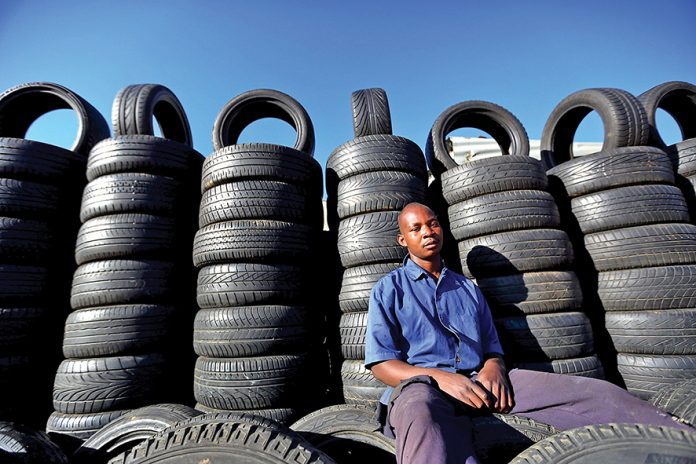Zakes Mda’s novel, Ways of dying, features the character Toloki, who, unable to find conventional employment, invents the rather macabre profession of mourning at strangers’ funerals.
While this does not make him wealthy, it provides him with an income stream that, although meagre, was previously unavailable to him.
A key lesson for South Africa from Toloki’s inventiveness is that thinking out of the box should be the default mode when the typical way of tackling challenges does not bear the desired result. A good example of where this can be applied is the country’s stubbornly high unemployment rate, which maintained its ascent in the fourth quarter of 2021, climbing to 35,3% from 34.9% in the preceding quarter.
If those that have despaired of ever finding employment and are no longer on the job market are included in the tally, the percentage rises to 46.2%.
As trade federation Cosatu has warned, the percentage of working-age South Africans who are out of employment, including those who have stopped looking, will hit 50% soon unless the government introduces more effective interventions.
Said differently, Cosatu is calling for a Toloki-like mentality to tame the unemployment scourge, which has been shown to be a major driver of crime and other social ills.
Unlike Toloki, the government does not necessarily have to invent new professions to absorb the vast army of the unemployed.
However, a change of tack is required, and a good starting point would be fostering entrepreneurship so that citizens are able to create employment for themselves and others instead of looking for that elusive job in the formal sector.
As the World Bank pointed out in a 2021 report, self-employment represents a paltry 10% of all jobs in this country, compared with 30% in countries such as Turkey, Mexico, and Brazil, which, like South Africa, are upper-middle-income economies.
According to the World Bank’s calculations, our unemployment burden could potentially be halved if we raise our self-employment rate to the same level as our upper-middle-income peers.
Granted, South Africa has a wonderful entrepreneurship-focused policy in the National Informal Business Upliftment Strategy, which was launched by the Department of Small Business Development in 2014. The major problem, however, has been a lack of robust implementation of the strategy.
The World Bank’s prescription for fostering self-employment, to which the South African government should pay heed, includes easing licensing requirements for informal businesses and doing away with land-use zoning regulations that place undue restrictions on business operations in townships and other urban settings where workplaces, public spaces, and dwellings often overlap.
Furthermore, linking informal businesses to state procurement at national, provincial, and municipal levels would do these businesses a world of good.
This is where a Toloki-like mentality is required.
The full-throttle promotion of self-employment does not, however, imply that focus should be taken away from formal employment.
Take the agricultural sector, for example.
Although it recorded a net gain of 38 000 jobs in the fourth quarter of 2021, its skilled-worker complement declined by 20.6% year on year.
AgriSA has said the pedestrian growth in the sector is partially attributable to the poor state of South Africa’s roads, rail network, and ports.
Fixing these will surely go a long way towards placing the agricultural sector on a steeper growth trajectory, which will lead to a faster rate of job creation.
State-owned power utility Eskom is also a contributor to the woes of South African businesses, which complaint about high electricity tariffs and frequent bouts of load-shedding, which play havoc with business operations.
Of course, the benefits of interventions such as fixing Eskom and our ports, road, and rail networks are unlikely to manifest in the short term.
However, creating an environment where small businesses can flourish should not take a lot of time. The government should go for it.
- Morena is CEO of the Southern African Institute of Government Auditors
For more business news from Sunday World, click here.
Follow @SundayWorldZA on Twitter and @sundayworldza on Instagram, or like our Facebook Page, Sunday World, by clicking here for the latest breaking news in South Africa. To Subscribe to Sunday World, click here.



